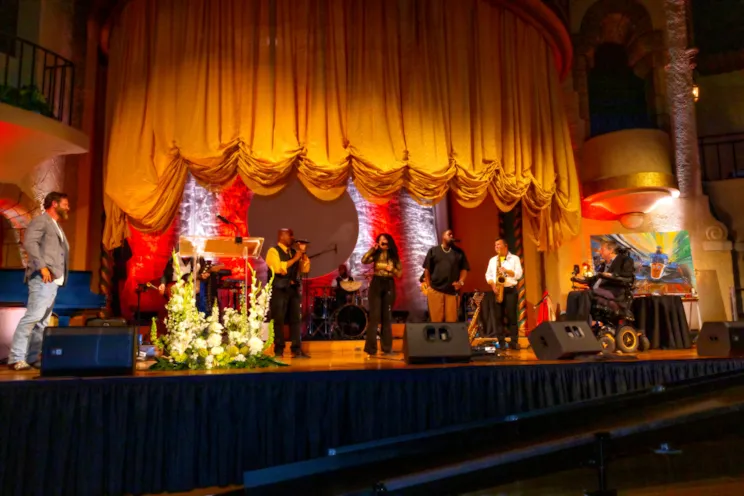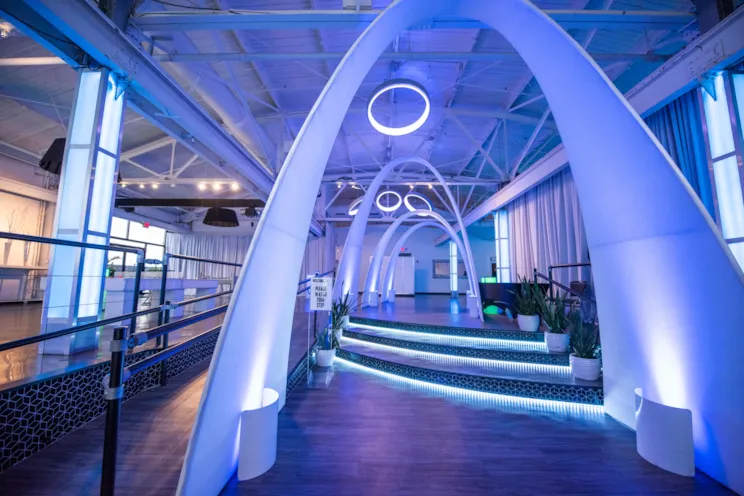
Designing Events with Every Guest in Mind
At Crystal Signature Event’s family of three distinctive, premier downtown Indianapolis venues, we believe that every event should be a welcoming and inclusive experience for all guests, regardless of their abilities. Inclusive event design is not just a trend; it’s a commitment to ensuring that everyone can participate fully and enjoy the events we host. As a full-service event planning, execution and catering company, we understand the importance of creating spaces that cater to the diverse needs of our guests. Here are some tips on how to approach inclusive event design and the steps to take to create accessible spaces.
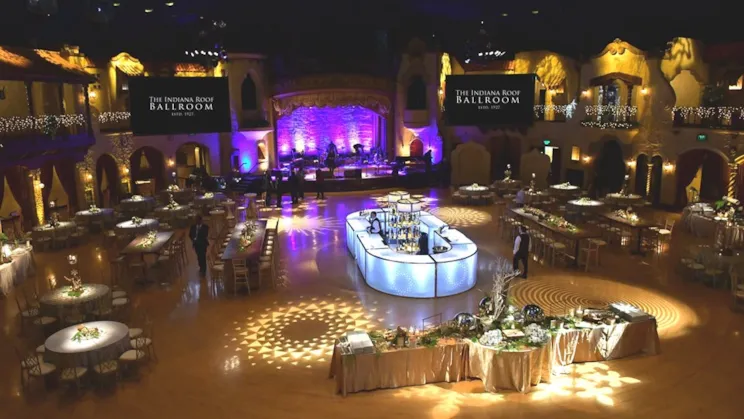
Understanding the Importance of Inclusivity
Inclusivity in event planning means more than just meeting legal requirements for accessibility. It’s about creating an environment where all guests feel valued (whether physical disabilities, sensory sensitivities, food allergies and preferences, or other diverse needs) and can participate fully, without barriers, to equally enjoy the experience. In a diverse city like Indianapolis, where our community is made up of people with varying abilities, backgrounds, and needs, it’s essential that our events reflect this diversity. When we design events with inclusivity in mind, we’re not just creating accessible spaces; we’re fostering a sense of belonging for all our guests.
Designing Accessible Physical Spaces
Creating an inclusive event starts with designing accessible physical spaces. This includes ensuring that all areas of the venue are easily navigable for individuals with mobility challenges, such as those who use wheelchairs, walkers, or crutches.
- Entrance and Exits: Ensure that all entrances and exits are accessible, with ramps, elevators, and wide doorways that accommodate guests with mobility aids. Also consider the placement of automatic doors and clear signage that directs guests to accessible routes.
- Seating Arrangements: Seating arrangements are designed to accommodate everyone. Offer spaces for guests in wheelchairs and provide seating that is easily accessible. Also make sure that these areas are integrated into the main seating areas so that guests with disabilities can enjoy the event alongside everyone else.
- Restroom Accessibility: Accessible restrooms are a must-have for any event venue. Ensure that restrooms are equipped with grab bars, low sinks, and wide doorways, and that they are located near the main event spaces. Additionally, provide gender-neutral restrooms to cater to all guests.
- Stage and Presentation Areas: For events with stages or presentation areas, ensure that ramps and lifts are available so that speakers or performers with mobility challenges can easily access the stage. Also make sure that microphones, podiums, and other equipment are adjustable to accommodate different needs.
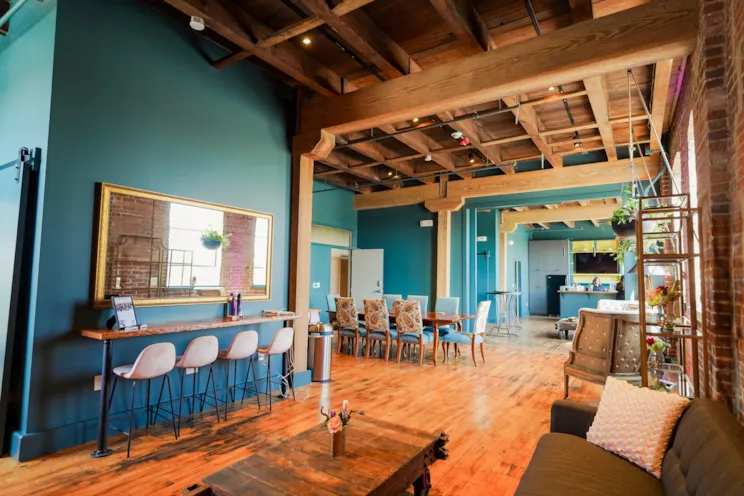
Sensory Considerations
Events can be overwhelming for guests with sensory sensitivities, such as those with autism or sensory processing disorders. Take steps to create a sensory-friendly environment that allows all guests to feel comfortable.
- Quiet Spaces: Provide designated quiet areas where guests can retreat if they need a break from the noise and activity of the event. These spaces should be equipped with comfortable seating, low lighting, and minimal sensory stimulation.
- Lighting and Sound: Be mindful of lighting and sound levels throughout the event. This includes avoiding strobe lights (or posting warning signs if strobe lights will be used), using soft and adjustable lighting, and controlling the volume of music and announcements. Providing noise-canceling headphones for guests who may need them would be another way to make guests feel more comfortable.
- Communication Aids: For guests who are deaf or hard of hearing, offer sign language interpreters, captioning services, and assistive listening devices. Provide written materials, such as event programs and menus, in large print or Braille.
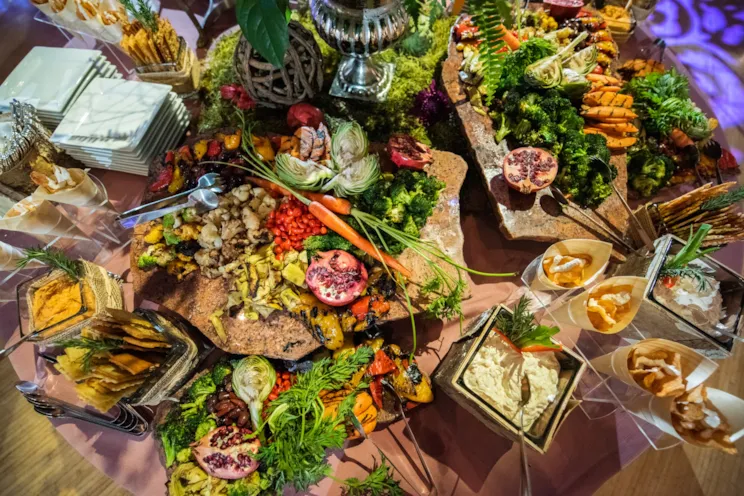
Understand and Accommodate Dietary Restrictions
Inclusive event design also means being mindful of guests’ dietary and cultural needs. Many guests may have dietary restrictions due to allergies, medical conditions, personal preferences, or cultural practices. Here’s how you can address these:
- Survey Guests in Advance: Send out a questionnaire with the event invitation to gather information about dietary restrictions. This allows you to plan meals that cater to everyone’s needs.
- Offer a Variety of Options: Ensure that your menu includes vegetarian, vegan, gluten-free, nut-free, and dairy-free options. Label all dishes clearly so guests can easily identify what’s safe for them to eat.
- Work with an Experienced Caterer: Choose a caterer who is familiar with creating meals that accommodate various dietary restrictions. At Crystal Signature Events our award-winning culinary team is skilled at suggesting menu items that are both inclusive and delicious.
- Dedicated Stations or Buffets: Consider setting up dedicated stations or buffets for specific dietary needs. For example, a gluten-free or vegan station can prevent cross-contamination and ensure that guests with dietary restrictions have ample options.
- Non-Alcoholic Beverage Choices: In addition to alcoholic beverages, offer a selection of non-alcoholic drinks. This is considerate for guests who abstain from alcohol for religious, cultural, or personal reasons.

Respect Cultural and Religious Practices
Cultural and religious practices can influence what guests can or cannot consume, as well as how they participate in an event. Taking the time to understand the cultural backgrounds of your guests will help you make informed decisions about the menu, event schedule, and activities. The Chaudhary Shatagopam Sangeet and wedding, hosted at The Indiana Roof Ballroom and The Crane Bay, is a great example of respecting cultural traditions and religious practices. To respect and honor these practices, consider the following:
- Inclusive Menu Choices: Include a diverse selection of foods that represent different cultures. For example, if you expect guests who observe halal or kosher dietary laws, ensure that you provide appropriately prepared food options. This may involve sourcing food from certified suppliers or working with a caterer experienced in these dietary requirements.
- Be Mindful of Fasting Periods: If your event coincides with a religious fasting period (e.g., Ramadan), consider scheduling meal times after sunset or providing takeaway meals for guests who are fasting.
- Respectful Entertainment Choices: Ensure that any entertainment or music selections are respectful of the cultural backgrounds of your guests. Avoid any activities that might be considered inappropriate or offensive to certain cultures.
- Flexible Event Schedule: Be mindful of religious observances that may require guests to pray or take breaks at specific times. Providing a quiet space for prayer or reflection can make a significant difference.
- Diverse Representation in Programming: If your event includes speakers, performers, or presentations, aim for a diverse lineup that reflects the cultural backgrounds and experiences of your guests. This fosters a more inclusive atmosphere.
- Bilingual or Multilingual Signage: If your guest list includes individuals who speak different languages, consider providing event materials and signage in multiple languages. This includes menus, programs, and directional signs. Hiring a translator could be another idea.
- Cultural Dress Codes: If your event has a dress code, clearly communicate any cultural expectations. For instance, if traditional attire is encouraged, provide examples or guidelines to help guests understand what’s appropriate.
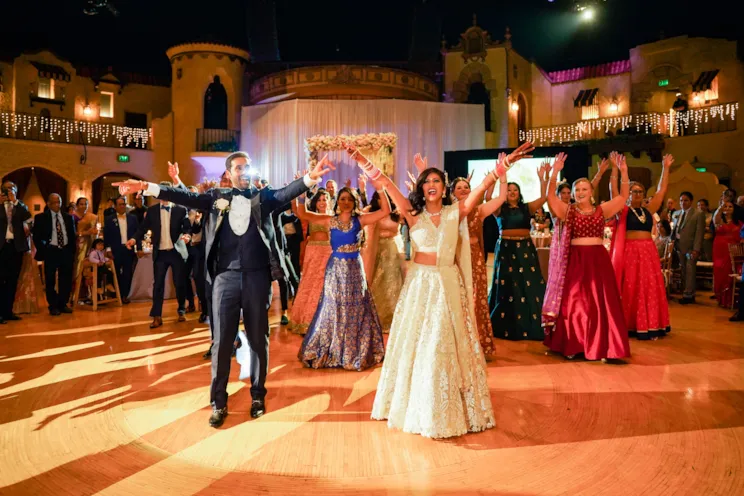
Training and Awareness
Creating an inclusive event isn’t just about the physical space; it’s also about the attitudes and awareness of everyone involved. Make sure all staff are trained to understand the diverse needs of their guests and to provide assistance in a respectful and compassionate manner.
Also work closely with the client to ensure that they understand the importance of inclusivity and that they are involved in the planning process, as they will know their guest list the best. By collaborating with clients, you can create events that truly reflect the values of inclusivity and accessibility.
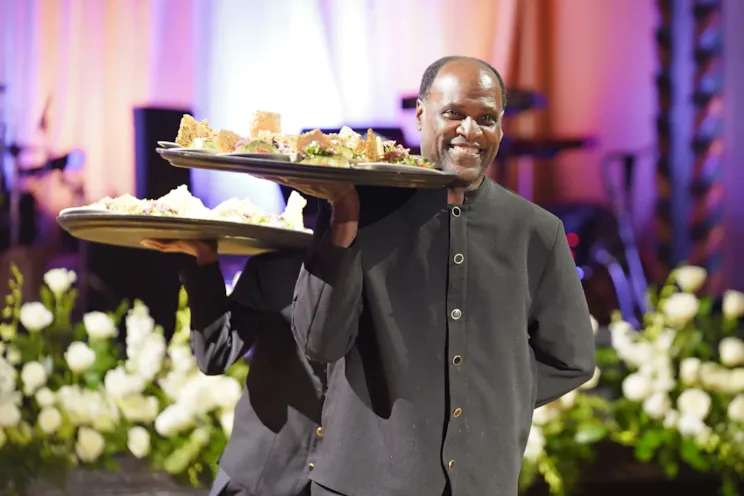
Feedback and Continuous Improvement
Finally, know that inclusive event design is an ongoing process. Actively seek feedback from your guests to learn how you can improve your spaces and services. By listening to your guests and making necessary adjustments, you can continue to create events that are welcoming and accessible to everyone.
At The Indiana Roof Ballroom, The Crane Bay Event Center, and The Heirloom at N.K. Hurst, Crystal is committed to creating inclusive spaces where all guests can feel welcome and valued. As mentioned, Inclusive event design is not just about meeting accessibility standards; it’s about creating an environment where everyone can participate fully and enjoy the experience. By designing accessible physical spaces, being mindful of sensory and dietary needs, and fostering a culture of awareness and respect, we can ensure that our events are truly inclusive for all. We look forward to continuing our journey toward greater inclusivity and making every event a celebration of diversity.
For additional information regarding this topic, view the Diversity Resource Guide and Accessibility Guide, courtesy of Visit Indy.
Explore How We Create Inclusive and Accessible Events at Our Premier Venues
Related Topics: Event Planning, Catering, Parties and Special Events, Charity and Fundraising Events, Corporate Events, Event Venues
